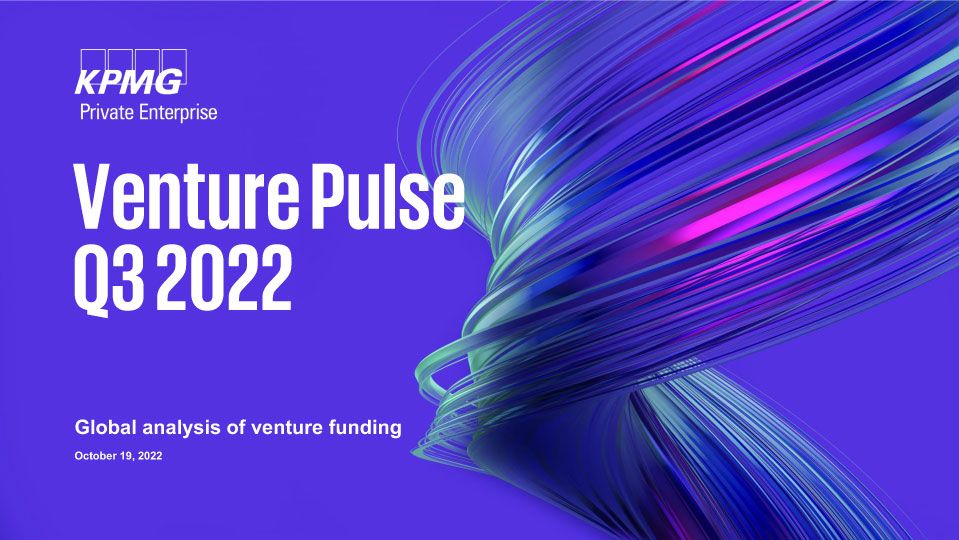Venture capital (VC) investment globally declined for the third straight quarter in Q3’22, despite five US$1 billion+ megadeals.
Amid the myriad of geopolitical and macroeconomic challenges, and growing talk of a global recession, VC investors have taken a cautious approach to their investments this quarter. Despite strong fundraising activity, VC investors took more time to evaluate deals conducting additional due diligence and placing a laser focus on profitability and business model sustainability.
Regionally, the Americas, Europe and Asia saw VC investment and the number of VC deals fall to levels not seen since early 2020. While VC investment in China rose slightly, after falling to a low in Q2’22, others in the region, including Singapore, India, Japan and Australia, saw VC investment tumble.
Key trends in Asia
In Q3’22, VC investors in Asia prioritised investments in companies that were able to generate revenue or show positive cash flows, while pulling back from higher-risk companies and those with unproven business models. Companies in high priority sectors, such as energy and hard tech (e.g. semiconductors) in China and edtech in India, also attracted significant attention.
Fundraising activity across most of Asia was significantly sluggish this year, with all indications that annual fundraising in the region will hit an eight-year low at the end of 2022. Only India bucked this trend, with fundraising more than doubling its previous record annual high at the end of Q3’22. Despite slow fundraising activity in China and Hong Kong, there were positive developments in Q3’22; during the quarter, Quming Venture Partners announced the closing of two funds totalling US$3.2 billion. These funds are expected to support early and growth stage companies in the healthcare and T&C spaces.
Compared to other regions, Asia experienced the highest IPO activity during Q3’22, with a number of new listings both on the mainland China exchanges and Hong Kong Stock Exchange. The HKSE saw its largest IPO of the year to date when China Tourism Group Duty Free raised US$2.1 billion in September. Hong Kong’s IPO pipeline remained strong, although some companies might need to reassess their financials considering shifting global market conditions. During Q3’22, there were also indications that the HKSE will shortly be issuing draft rules that would make it easier for hard-tech companies to list by reducing revenue and profit requirements.
VC investment in China during Q3’22 focused primarily on sectors identified as strategic growth priorities by China’s central government, including ESG, electric vehicles and hard-tech. The niche focus of these priority sectors compared to the previously hot consumer space has likely contributed to the slowdown in deals volume and funding in China over the last 18 months. On the ESG front, VC investors focused primarily on technology companies that enabled alternative energy and low carbon solutions, including companies focused on battery technologies, solar panel development and electric vehicle manufacturing.
VC investment in India was relatively quiet in Q3’22. The largest deals of the quarter included a US$210 million raise by edtech upGrad, a US$165 million raise by online eyeglass prescription company Lenskart, and a US$130 million raise by neo-bank platform Niyo. Fintech was one of the most attractive sectors of investment in India this quarter; in addition to Niyo’s raise, online automobile insurance company InsuranceDekho raised US$100 million, and digital lending company EarlySalary raised US$97 million.
VC investment in Japan dipped slightly in Q3’22. Despite the decline, key sectors continued to attract interest from investors in the country, including fintech, business productivity, healthtech and ESG. Healthtech was viewed as particularly attractive during the quarter, with medical ICT firm Allm raising US$183 million and digital therapeutics company CureApp raising US$51 million.
VC investment in Asia is expected to remain soft in Q4’22 overall, given global macroeconomic uncertainties and policy uncertainties in China. In Q4’22, China’s governing party will host its next major congress — an event held every five years. The congress is expected to guide China’s direction for the future. Any tangible policy outcomes from the congress could affect the health and focus of VC investment in the coming quarters depending on how initiatives are identified and rolled out.

Asia
- VC investment drops to US$21.7 billion across 2,352 deals
- Valuations hold steady
- VC activity remains resilient in China, India and Japan
- Corporate VC pulls back in line with broader market
- Exit activity increases for 3rd consecutive quarter
- Chinese companies raise 8 of largest 10 deals in Asia
For more insights into key trends, opportunities and challenges facing the VC market globally and across regions, download our full Venture Pulse report.


Get in touch
Connect with us
- Find office locations kpmg.findOfficeLocations
- kpmg.emailUs
- Social media @ KPMG kpmg.socialMedia



